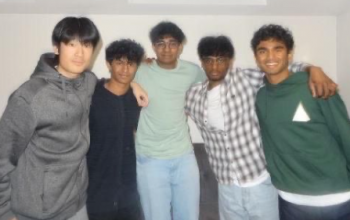When Georgia Burbridge, 21, first applied for university, the overwhelming feeling was confusion. The question of whether she would get accepted into the university of her choice plagued her as it did her peers. But, it was different for Burbridge as she would be the first in her family to attend university.
Burbridge and her peers would share similar experiences such as navigating nights out, peer pressure and horrible roommates, but while they could bond with their parents over their shared university experience, Burbridge was not able to do that.
First generation students are those who are the first in their families to attend higher education. According to the Oxford Review of Education, students like Burbridge make up two thirds of university populations in the UK.
Burbridge’s parents didn’t attend university as her father was more passionate about football, and her mother was not academically gifted and found the cost of courses a barrier. University just wasn’t an option for her mother not only because she wasn’t academically inclined but also the cost of courses and accessibility. To this day, her mother says she still hopes to get a degree.
Burbridge said: “Sometimes my mum expresses an interest in getting more of an education but she brushes it off because of her age.”
This impacted Burbridge as she has felt that she did not feel like she was smart enough to be pursuing a degree.
Burbridge said: “I barely lived on campus. I nearly dropped out.”
A study conducted by Stanford University found that first in their family university students who do not come from homes that value postsecondary education can lack this kind of support. Some must confront more than a detached attitude or the absence of advice on the home front.
University of Brighton graduate Daisy Rose, 22, said her father didn’t attend university because he grew up in the care system and went straight into work after school. Her mother simply didn’t have the finances to attend. Because of this Rose felt uncertain and ill-prepared for university.
Rose said: “I feel others had a clearer idea on university life as a whole.”
Rose did not feel well informed about her career path. She did not realize she would have to apply for training contracts in her second year and she did not have anyone in her family she could speak to about this. The dissonance between her experiences and her parents made things hard for her as a first generation student.
Despite Rose’s parents not being able to relate to her university experiences, they were very emotionally supportive during her degree, although they didn’t always understand why she constantly studied and pushed her to have more fun.
Rose felt slightly disadvantaged as she didn’t have anyone to tell her which universities to go to and felt ill-informed at times especially as she did not even know what a Russell Group university was.
Russell Group universities are elite tertiary educational institutions in the UK considered the best for academic achievement as well as career progression.
She said: “I’d always wanted to go to university however I was never told about the importance of attending a “high ranking” university. I never knew Russell Groups were a thing and had no idea where I was applying to would impact my future.”
Overcoming imposter syndrome
Imposter syndrome is when people feel that they may have achieved their success or gotten to the place they are by chance or luck. It’s a gnawing feeling that you’ll be caught out and found out for being a fraud, when often that’s not the case. This feeling has rung true for Burbridge and Rose as well.
Burbridge said: “I’ve felt that I’m not smart enough to be doing a degree and I’ve also felt lonely sometimes not fitting in with social groups.”
Rose said: “I get imposter syndrome from time to time. I just have to reassure myself that I have worked hard and deserve the future I’m working towards.“
A 2019 study in Social Psychological and Personality Science found that first generation students are more at risk of experiencing imposter syndrome and that they drop out at higher rates than non-first-generation students.
Rose confessed that at one point the pressure of university became so much that she contemplated dropping out. Despite this she endured the exams, assignments and even when she got pregnant in her third year and gave birth during the exam period she managed to graduate with a 2:1.
She said: “I definitely surprised myself and everyone who thought I’d drop out from uni.”
Rose is currently pursuing her master’s degree and hopes to start her PhD at Birmingham University in 2022.
Burbridge told The Kingston Courier that her attending university had inspired her 17-year-old brother to follow in her footsteps.
Burbridge said: “I do feel I’m setting an example because I want him to know that you can do whatever you set your mind to.”
Although Rose feels the same, she does feel slightly worried that her two sisters will feel pressured to go to university just because she did so. She hopes they’ll find a path in life that makes them happy and fulfilled as she did.
Support for first generation students
Rose noted that programmes for first generation students helped her immensely, and that she had stood out in applications to potential employers and scholarship opportunities.
Kingston University Head Start programme which helps those who are first generation students feel more prepared for university.
The programme begins a few weeks before the official start of the term. Students become familiar with the university as well as the support services in place for mental well-being and academic support.
The road has been long, and Rose said she was proud of herself.
Rose said: “I am almost a qualified lawyer.”
Both Rose and Burbridge’s parents said they were proud of the achievements they have accomplished and the bright futures they have ahead of them.





